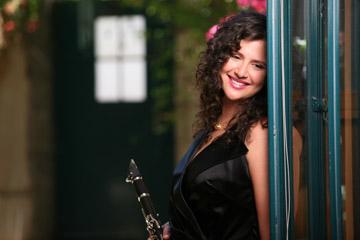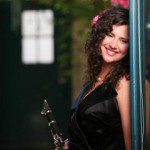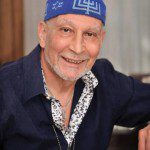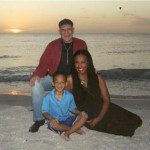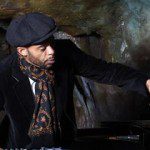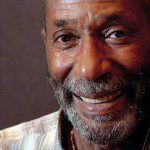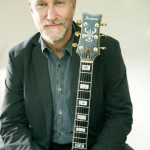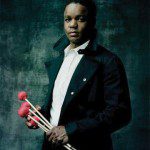Washington has its own culture —and it’s not just the whole center-of-the world, seat-of-government thing. It’s about music and neighborhoods, actors and museums—all the things that are the mosaic and the background of our daily lives Washington’s culture gets richer every year because of the work of its native citizens—people who have ideas, see needs and get other people to see what they see. The result is an environment of cultural arts institutions, festivals, concerts and music series and a rich theater and art world that have endured and enriched Washington culture, its contents and its reputation.
A good chunk of the heavy lifting in this arena—not excluding the existing culture totem poles and brand names like the Kennedy Center—has been done by individuals who can best be described as originals, one-of-a-kinds.
We’ve always had them in one form or another. The late Raissa Tselentis, who created the Bach Competition, the late and larger-than-life Maria Fisher, founder of the Beethoven Society and the Thelonius Monk Institute, Jerome Barry practicing cultural and musical diplomacy with Embassy Series, Norman Scribner, the founder of the Washington Choral Arts Society, Chuck Brown, who gave the city its own go-go sound, and many others.
To that list should be added the name of Charlie Fishman, the founder and executive producer of what is now called the D.C. Jazz Festival, now in its eighth year, and celebrating all over town June 1 through 10. Jazz festivals have been tried before, but it was Fishman who has grown and expanded the festival, guided it through rough patches and made it what appears to be a permanent institution of Washington’s culture.
You can get all the evidence you want by looking at the full schedule and various features of the festival, spread to all corners of the city with its innovative “Jazz in the Hood” component. It has big name artists—Ron Carter, Kenny Barron, Anat Cohen, Paquito D’Rivera, Dianne Reeves. They will playing at the Hamilton restaurant in downtown Washington, the spectacularly renovated, refurbished Howard Theatre, neighborhood clubs and restaurants as well as featured jazz performances at the I Street Synagogue and the Kennedy Center. The festival, as it exists today, is marked by innovation, an eye to the future, tremendous variety and energy, and Fishman’s rock-solid belief in the future of jazz as an American art form.
Everything has changed since 2005, when the first festival was held. Yet when you visit Fishman at his Adams Morgan home in the basement-office, nothing much appears to have changed since we first met there three years ago before the fifth festival, when it was still called the Duke Ellington Jazz Festival. There is, if that’s possible, more clutter on his desk, and some additions to the array of stuff you find there—a huge library of jazz CDs, books, magazines and newspapers.
Fishman himself is parked behind his desk, wearing as always one of a collection of yarmulkes, handmade, a thin gray-white beard on his face. He’s plugged into a phone and his computer, doing what he was doing the last time I saw him here, which is checking schedules, checking incoming musicians’ hotel reservations, making sure his seven-year-old son Moses was being picked up from school
“Yeah, I think this city is rich in originators, in people who have influenced the culture, who’ve created something,” Fishman said. “I knew Maria Fisher, by way of the Monk thing for one. Now, there was an original. I can think of others—Ari Roth, over at Theater J, Bill Warrell, who was District Curator and tried to keep a jazz festival going. He was a forerunner.”
“Jazz is our—America’s—idiom, its most original cultural contribution,” Fishman said. “And that’s especially true here—the Duke Ellington history is here. There are so many terrific local jazz musicians here, and there’s an audience. But for a long time, given all that, we were still the only city in the country that didn’t have a proper jazz festival.”
That changed eight years ago, when Fishman, with the help of many others, turned vision into reality and maintained it. “It was shaky sometimes,” he said. “But I think we’ve turned the corner here.”
“I think the festival is in a very good place,” Fishman said. “But when you talk about making something permanent, you can’t think just in terms of a festival, however good it might be. We’re already doing some things—educational outreach, special programs throughout the year in the schools, at embassies, we had a thing with the Cherry Blossom Festival. To me, the jazz festival is a year-round thing, and it’s a part of the heart and soul of this city.”
Fishman, as any founder worth his soul, wants national recognition and respect for the festival. He tends to think big, including global—which is natural enough given his 20-plus years with the legendary Dizzie Gillespie. But he also sees the music and the festival as a living thing, part of the neighborhoods of Washington—hence, the “Jazz in the Hood” special, which can be found in parts of D.C. as different as Anacostia and Georgetown.
“To me and people I know, Washington is about neighborhoods,” Fishman said. “I like living where I do, in Adams Morgan. It’s a lively neighborhood, the kind of place where the music is appreciated, and you can talk about it with your neighbors and friends.
He’s living a life that seems to get richer—in terms of meaning, if not necessarily, money—with the passage of time, a development that seems to surprise him still. Fishman talks about his family—wife Stephanie Peters, an executive with Microsoft, and their son, Moses. “It’s our 10th anniversary this year,” he said. “She was a surprise to me. I was divorced, I’d been single for 19 years and I have three grown children. I just thought that was it, and I was going to spend the rest of my life alone. Then, I met Stephanie, and that was it. I’ll tell you, if anybody keeps the festival together, it’s Stephanie. ”
He and his wife have a shared passion for jazz, and a devotion to their son. “He’s amazing. He’s a gift. He really is.”
He’s a little something more—he’s steeped in jazz, which couldn’t be helped given his parents. He played drums, and now he’s playing piano. “Let me show you something,” Fishman said. He does some clicking and brings up a video of Moses confidently playing Thelonius Monk at age seven.
For Fishman, jazz is the music he’s always heard running through his life. “I see the festival growing, taking on its own life,” he said. When it comes to his own life, he added: “the rest is not yet history.”
DC Jazz Fest Sidebar
Jazz in the Hoods, Jazz Meets the Classic, Jazz and Family Fun Days, Jazz at theHamilton, Jazz at the Howard. It’s all that Jazz at the annual DC Jazz Festival June 1-10, with top drawer attractions, jazz legends and new blazing stars and musicians.
As always the festival honors the living legends of jazz, with the presentation of its Lifetime Achievement Award to Kenny Barron, called the “most lyrical piano player of our time” by Jazz Weekly, and Ron Carter, a legendary jazz multitasker as bassist, cellist and author, an artist with more than 2,500 albums to his credit and numerous awards including two Grammies.
The two men will be honored at the festival’s signature concert Jazz Meets the Classics in collaboration with the Kennedy Center on June 4 with a performances by the Classical Jazz Quartet (Barron, Carter, Stefon Harris and Lewis Nash), preceded by an opening concert with the festival’s co-artistic director Paquito D’Rivera and his Sextet.
Other highlights of the Festival include the mushrooming in size and events Jazz in the “Hoods”, which splashes jazz, its music and performers city-wide with 80 performances at over 40 museums, clubs, restaurants, hotels and galleries. It’s presented by Events DC, and attracts a large and diverse audience and showcases D.C.-based jazz groups.
Kicking things off in the ‘Hoods is Ron Carter headlining at the Bohemian Caverns, the popular jazz club on U Street, one of the key elements in the festival. Also part of Jazz in the ‘Hoods is the DC Jazz Loft Series, a three-day series of events that includes a mini-festival on June 9.
The Hamilton (on 14th Street), one of downtown’s newest clubs and hot restaurants, will be the Festivals main venue with ten nights of performances with such headliners as Monty Alexander, Jimmy Heath, Roy Hargrove, David Sanchez, Les Nubians, Marshall Keyes, Antonio Hart and others, along with Jazz Gospel Brunches, featuring with the WPAS Gospel Choir and Lori Williams.
Jazz at the Howard highlights and celebrates the return of the restored Howard Theater, which only recently opened and will including such performers as Grammy Award-winning vocalist Dianne Reeves and Italian guitarist Pino Daniele.
A highlight of this year’s festival is a performance by Israeli clarinetist and saxophonist Anat Cohen at the Sixth and I Historic Synagogue, as well as six concerts co-presented by the Kennedy Center at its Milenniuim Stage, with performers like the Bohemian Caverns Jazz Orchestra, Origem and Malika Zara.
- Anat Cohen

